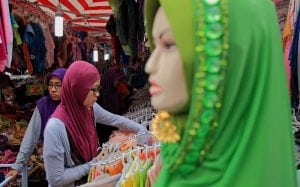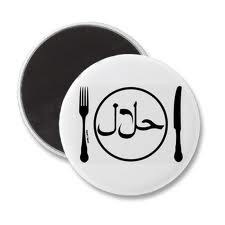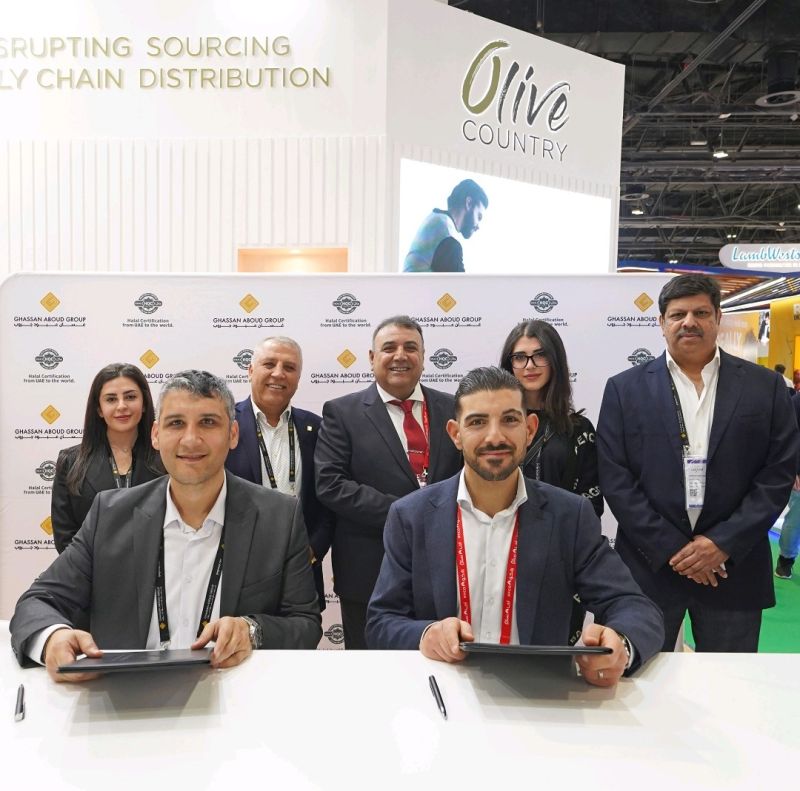
YOUNG Muslim women in Southeast Asia are coming into focus for marketers as an influential group in style, fashion, travel, tech-savviness and entrepreneurship while remaining religiously observant, a survey by J. Walter Thompson (JWT) Intelligence has found.Religion remains the top priority for Muslim women in Malaysia and Indonesia, even as they become increasingly cosmopolitan in outlook, said the survey The New Muslimah: Southeast Asia Focus, which was conducted in August among 500 women in each country.
It was aimed at understanding the trends and preferences of Muslimah in Southeast Asia in the US$1.9 trillion Muslim consumer market for lifestyle brands and digital channels while combining religious requirements.
Practising Islam ranked highest for Muslimah in both countries, with praying taking top priority (98%); followed by wearing the hijab or headscarf (58%); buying, eating or using halal products (35%), and performing the haj (10%).
“Nearly all women say they pray five times a day; 94% say Islam is “very” important to them, ranking higher than family (91%), happiness (91%), and peace or serenity (89%),” the survey said.
Geographically, 90% of the women were from urban and suburban areas in Java, Indonesia, and the central region of Malaysia and 60% are married.
In terms of work and education, 68% were employed full-time, 7% employed part-time and 8% self-employed. The women surveyed were also highly educated, with 66% of Indonesians and 56% of Malaysians having completed an undergraduate degree.
Halal is important
In Malaysia, 60% of the 30 million population is Muslim, while in Indonesia – the world’s most populous Muslim country – Muslims make up 80% of the 260 million population.
The survey found that in both countries, a majority believed young Muslim women today were more conservative than women of previous generations.
The survey found 44% of the Malaysian and Indonesia women aged 18 to 39 saying they were “as religiously observant compared with their parents when they were their age”.
Being more religious, a halal diet – which means pork-free with certification from an Islamic authority, and alcohol-free – is also a top priority, with nine in 10 women describing it as “very important”.
“Halal is most important when purchasing food (92%), and also when purchasing personal care products (67%), followed by banking and financial products (52%), clothing purchases (52%) and travel (39%).
“It is less important when purchasing travel or choosing entertainment, such as music.”
When it comes to fashion, most Muslimah – 85% younger women and 77% older women – have at least 10 headscarves or hijabs. Only 1% of the younger women and 7% of the older women have none.
“For many women, the hijab, and accompanying modest fashion, has become a symbol of identity and unity as young Muslimah.
“Indeed, modest fashion has become an industry that’s forged a larger network across the world of Muslim fashion,” the survey said.
The report noted that a range of forces had helped promote the “Islamisation of public and private life since the late 1970s” in both countries, such as the 1979 Iranian Revolution, local student movements which regarded Islam as the alternative to Western modernity, and the rivalry of political parties to win Muslim votes.
In recent years, the report said, religious classes have become popular with adults and children and for women, the most obvious outward manifestation of Islamisation was the widespread adoption of the headscarf.
“Previously, Muslim women would have gone bareheaded or occasionally draped their hair with a loose scarf for weddings and other special occasions.”
Muslim-friendly holidays
The majority of young Muslimah travel for leisure, with about a third of the women saying they go overseas at least once a year. However, Indonesians are more likely to travel for business than Malaysians.
Most travel with family or friends. Japan, Korea and Thailand are favourite destinations for both Malaysian and Indonesian Muslim women. The Malaysian Muslimah also favours Indonesia while her Indonesian counterpart likes Singapore.
The younger women were also found to enjoy destinations like Korea, Australia and New Zealand more than the older women.
“When selecting a destination, women factor in cost and the country’s friendliness towards Muslims,” the survey found, noting that countries like Thailand, Japan and Korea were increasingly providing Muslim-friendly facilities in tourist attractions and mall, while their restaurants offer halal food.
Women representation
Nearly all the women in the survey felt there were now more opportunities for the fairer sex than in the past.
But 91% of them felt young women should have more voice in local government and 90% thought the same for national government.
Meanwhile, 71% of them felt that young women should be given more freedom and 88% thought they should have a voice in their respective mosque community.
“While more women are being elected to local and national positions in both Indonesia and Malaysia, there are still hurdles to overcome for women entering politics, including the lack of support networks and facilities such as childcare, and even nursing rooms, in government buildings.”
When it came to how Muslim women were depicted in advertisements, 82% of young women in Indonesia thought they reflected reality, but only 56% of young Malaysian Muslimah felt the same.
Tech-savvy
All the Muslimah have handphones or smartphones, with Samsung being the most popular brand in both Indonesia (51%) and Malaysia (35%), followed by the Apple iPhone.
Four out of five women spend at least four hours online, with the younger women spending more time than their older counterparts. The most popular social media tools are WhatsApp, Facebook, and Instagram.
Online shopping is also popular, but more so in Indonesia where 31% of the younger women shopped at least once a week and 75% at least once a month, compared with Malaysia’s 24% and 58%.
“Women are most likely to shop online for clothing and beauty products, followed by technology, travel and groceries. One third of women use payment apps, mostly Google Wallet or Samsung Pay,” the report found.
The survey also revealed that a third of the women use dating apps and websites. In Malaysia, the most popular app is WeChat while Indonesian women used a mix of online dating platforms.
Education, career and marriage
More than half of the women aged 18 to 39 viewed career as “very important” in Malaysia (58%) and Indonesia (52%). Those aged 40 and above who put the same importance in careers made up 48% (Malaysia) and 45% (Indonesia). A majority of the women also viewed education as very important.
For marriage, more Indonesia women – 81% younger women and 75% older women – regarded it as very important. Only 54% of Malaysian Muslim women aged 18 to 39 and 49% women aged 40 and above felt the same.
The report also presented case studies on Muslimah personalities, including Malaysia’s US-based singer-songwriter Yuna, who broke the stereotyped image of Muslim women and Muslim female singers, and inspired a new tribe of “hijabsters”.
Also featured were other Malaysian and Indonesian female performers, and fashion and cosmetics online entrepreneurs. – September 26, 2017.




